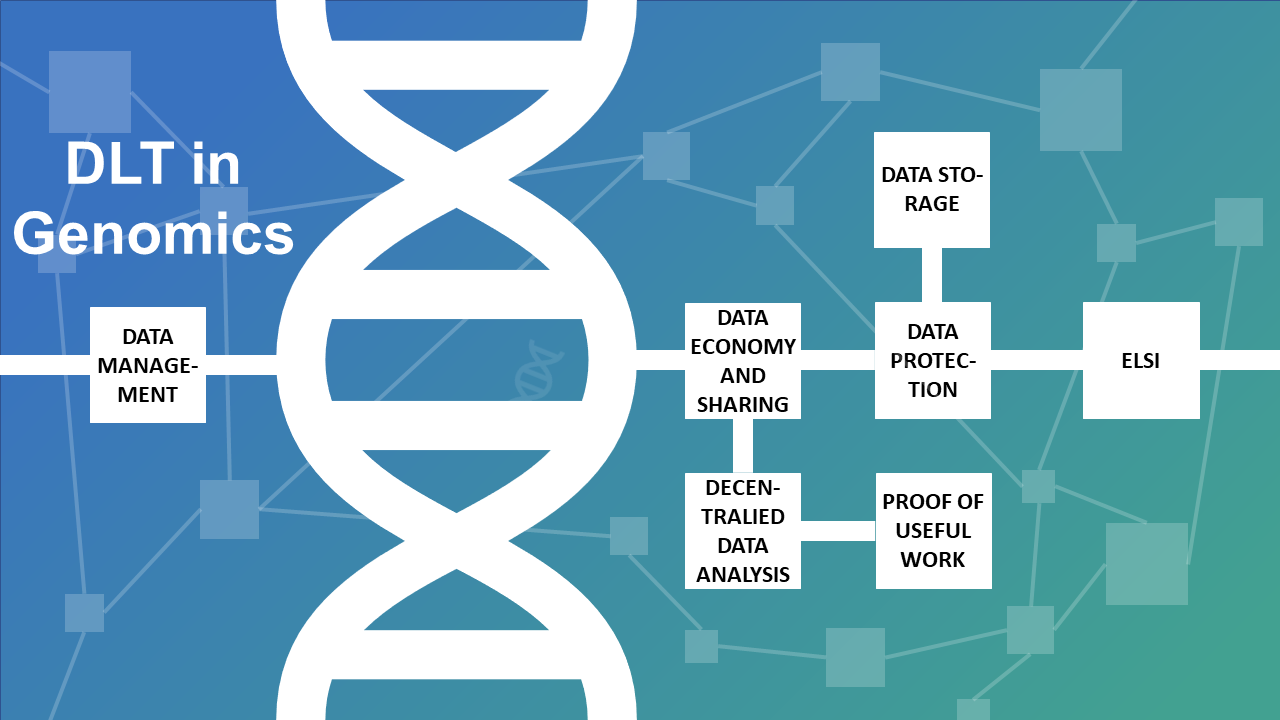New article on DLT in genomics published in the Journal of the American Medical Informatics Association
(21.05.2022) Our paper “A scoping review of distributed ledger technology in genomics: thematic analysis and directions for future research” by Mikael Beyene, Philipp A. Toussaint, Scott Thiebes, Matthias Schlesner, Benedikt Brors, and Ali Sunyaev has been published by the Journal of the American Medical Informatics Association. The article is published open access and freely available to the public.

View article on publisher site: https://academic.oup.com/jamia/advance-article-abstract/doi/10.1093/jamia/ocac077/6589998
Abstract:
Objective
Rising interests in distributed ledger technology (DLT) and genomics have sparked various interdisciplinary research streams with a proliferating number of scattered publications investigating the application of DLT in genomics. This review aims to uncover the current state of research on DLT in genomics, in terms of focal research themes and directions for future research.
Materials and Methods
We conducted a scoping review and thematic analysis. To identify the 60 relevant papers, we queried Scopus, Web of Science, PubMed, ACM Digital Library, IEEE Xplore, arXiv, and BiorXiv.
Results
Our analysis resulted in 7 focal themes on DLT in genomics discussed in literature, namely: (1) Data economy and sharing; (2) Data management; (3) Data protection; (4) Data storage; (5) Decentralized data analysis; (6) Proof of useful work; and (7) Ethical, legal, and social implications.
Discussion
Based on the identified themes, we present 7 future research directions: (1) Investigate opportunities for the application of DLT concepts other than Blockchain; (2) Explore people’s attitudes and behaviors regarding the commodification of genetic data through DLT-based genetic data markets; (3) Examine opportunities for joint consent management via DLT; (4) Investigate and evaluate data storage models appropriate for DLT; (5) Research the regulation-compliant use of DLT in healthcare information systems; (6) Investigate alternative consensus mechanisms based on Proof of Useful Work; and (7) Explore DLT-enabled approaches for the protection of genetic data ensuring user privacy.
Conclusion
While research on DLT in genomics is currently growing, there are many unresolved problems. This literature review outlines extant research and provides future directions for researchers and practitioners.
